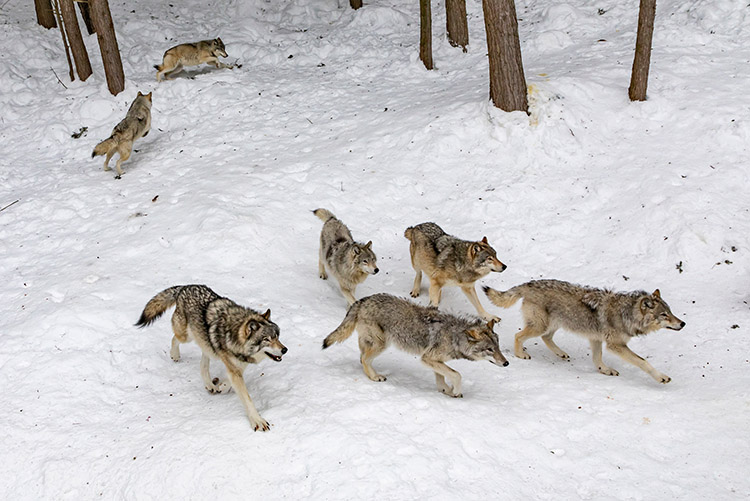
Grey wolves slowly make their return into Colorado boarders as the year progresses. photo by Eva Blue on Unsplash.
Wolves have finally made a return to the state of Colorado.
The Gray Wolf Pack has made its way into Colorado, being the first pack here since the 1930/40s. Occasional sightings of singular wolves have popped up here and there constantly between then and now, but this is the beginning of a whole new pack calling this state home in such a long time.
As wolves are indigenous to Colorado, it is a shame that they were forced to leave in the first place. The wolves left Colorado after they began to eat cattle around the early 1900s and farmers began hunting them and murdering all that they could find, forcing the wolves to run. Due to the number of wolves that were lost and the new terrain they had to deal with, by the 1970s the wolves were categorized as an endangered species when there were only an estimated 1,200 left. This title has since been lifted with the pack having a large population in parks such as Yellowstone.
The return of wolves has been discussed many times over the past few years, all leading to the same decision: to not aid in their return. However, this was decided by lawmakers and not the general population. Now that the people are getting themselves involved, they are getting as many voices as they can. During the end of 2019, signatures were collected in support of bringing the wolves back. With a required amount of 124,632 signatures, over 200,000 signed to bring the question to the ballot.
Though wolves are no longer listed as endangered, they are still under federal protection, with the government wishing for their numbers to never decrease again, and possible federal charges being pushed if one were to be hunted by a person. Many have supported this effort to bring the wolves back. Countless citizens and the Sierra Club, a non-profit which is all about protecting and enjoying Colorado, and the Rocky Mountain Wolf Project, which was the main source for acquiring all the signatures needed to bring the decision to the ballot. These wolves have already proven to be helpful in other parks for clearing animals such as elk, which have carried diseases that spread to many other animals causing death. Yet, farmers in today’s society are worried just as those back in the day were, that the reintroduction of these wolves will put the lives of their cattle at steak.
Many people believe that it is their duty to bring the wolves back to Colorado, as they were the main reason as to why they were forced to leave nearly a century ago. With organizations fighting for their return and to help bring back an animal that was once removed, a healthy ecosystem could be restored. The fight for their return is crucial in restoring our wildlife, for the benefits that they provide could immensely help Coloradans and the nature around them. The final decision for wolves being reintroduced to the state will be on the fall 2020 ballot.